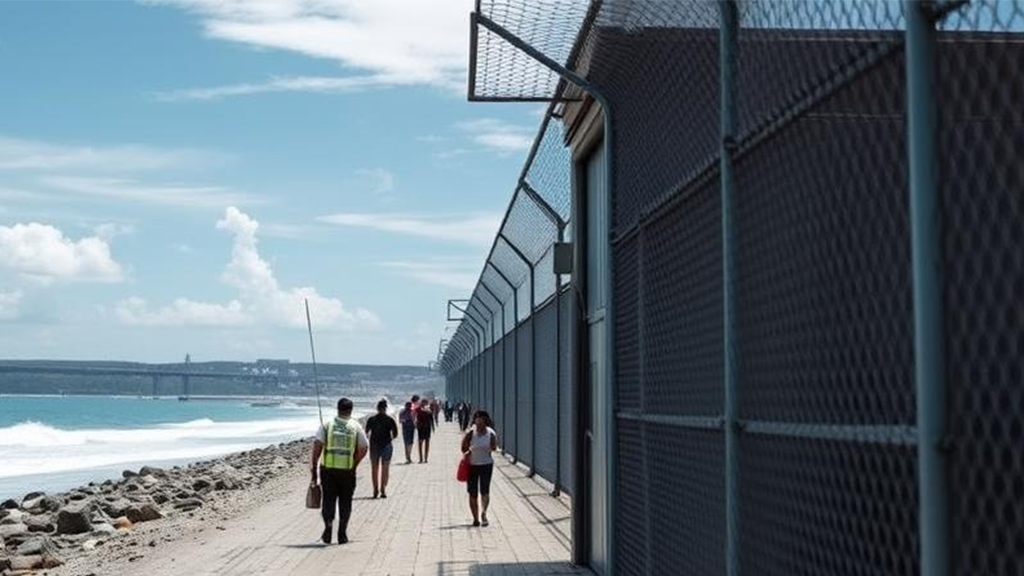

A US federal court in Albuquerque, New Mexico, has blocked the government from transferring three Venezuelan migrants from a local detention center to Guantánamo Bay. The court granted a temporary restraining order after lawyers argued that such a move would deprive the detainees of access to legal counsel and due process.
The migrants were accused of ties to the Tren de Aragua, a Venezuelan criminal gang with operations across Latin America and the United States. Their attorneys challenged these allegations, including representatives from the Center for Constitutional Rights, the American Civil Liberties Union of New Mexico, and the Las Americas Immigrant Advocacy Center. They asserted that sending the detainees to Guantánamo would effectively isolate them and hinder their ability to contest the accusations.
During a brief hearing, US District Judge Kenneth J. Gonzales ruled in favor of the migrants, granting the temporary restraining order despite objections from government lawyers. While the ruling is not final, it prevents immediate transfer and allows further legal challenges to proceed in the coming weeks.
The case comes amid a broader crackdown on immigration. Homeland Security Secretary Kristi Noem recently confirmed that flights carrying detainees had arrived at Guantánamo Bay, raising concerns among immigrant rights groups. Advocates warn that using the naval base for detainee transfers could create a “legal black hole” where individuals might be denied fundamental rights.
The Tren de Aragua gang, initially formed in a Venezuelan prison, has expanded its influence across Latin America and into the US. Authorities cite national security risks as justification for detaining individuals linked to the organization. However, the legal fight over the Guantánamo transfers highlights the tension between national security policies and the protection of legal rights for migrants.
The court’s decision marks a temporary but significant check on the government’s authority to relocate detainees offshore. Further proceedings are expected as both sides present their arguments, with potential implications for future immigration enforcement measures.








© THE CEO PUBLICATION 2021 | All rights reserved. Terms and condition | Privacy and Policy